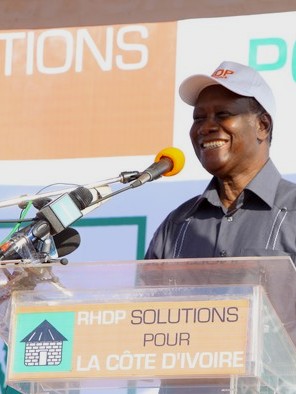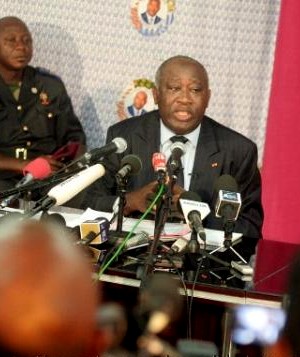|
Côte d'Ivoire Politics Côte d'Ivoire gears up for run-off poll
President Gbagbo, in power since 2000, is campaigning in Abidjan, the economic capital of Côte d'Ivoire, and its hinterlands. Mr Ouattara, a former Prime Minister, is focusing his campaign in the north of the country, which has been split off from the south since a 2002 civil war.
But also Mr Ouattara may count on some support from Abidjan voters. Abidjan is also the largest city of Ivorian northerners, although many fled the city during the clashes after the 2002 civil war. Mr Ouattara meanwhile is focusing his campaign in the north. This week, he participated in the traditional Muslim Eid celebrations - called the Tabaski party in Côte d'Ivoire - with an ample media presence. The northern leader strongly demonstrated his statesmanish manners. The big question is who will be able to conquer the three provinces won by Mr Bédié in the first round: south-western Bas-Sassandra and central Lacs and N'Zi-Comoé. Traditionally these should go to a southern candidate, but Mr Bédié has so far been more supportive of Mr Ouattara. A strong message of support from Mr Bédié could indeed turn the vote. In the first round, President Gbagbo won 38.05 percent of the vote, while Mr Ouattara came second with 32.08 of the vote. If Ivorians exclusively vote along the north-south divide on 28 November, President Gbagbo will become the clear winner. An opinion poll has also registered a 60-40 percent divide among Ivorians in favour of President Gbagbo. However, the same opinion pollers had strongly underestimated Mr Ouattara's support ahead of the first round. And in the end, all will depend on how Mr Bédié's voters decide in ten days. By staff writer © afrol News - Create an e-mail alert for Côte d'Ivoire news - Create an e-mail alert for Politics news
On the Afrol News front page now
|
front page
| news
| countries
| archive
| currencies
| news alerts login
| about afrol News
| contact
| advertise
| español
©
afrol News.
Reproducing or buying afrol News' articles.
You can contact us at mail@afrol.com









